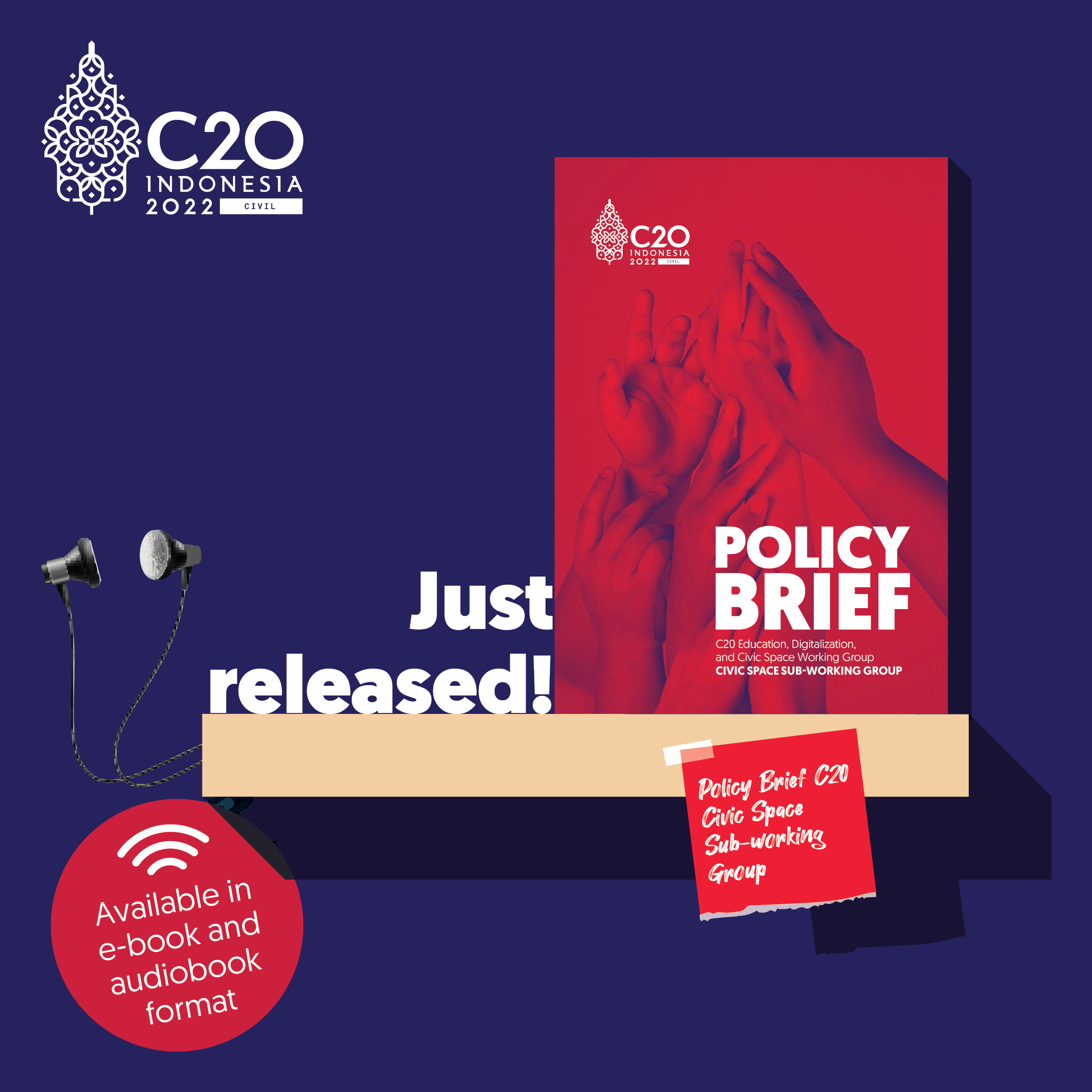 From a 2016 survey from CIVICUS and Civil Society Europe, the global situation of civic space is by no means a robust one. Even in Sub Saharan Africa, as early as in 2000, governments are curtailing civil society organizations from accessing foreign funds. Numbers and figures from indicators do not display positive trends on civic space conditions throughout the world. However, minimum action from the international community on the global platform has been done to expand and protect civic space. Recent crises and conflicts from parts of the world show geopolitical and economic interests are shifted, which makes the future for an improvement of civic space is rather dim.
From a 2016 survey from CIVICUS and Civil Society Europe, the global situation of civic space is by no means a robust one. Even in Sub Saharan Africa, as early as in 2000, governments are curtailing civil society organizations from accessing foreign funds. Numbers and figures from indicators do not display positive trends on civic space conditions throughout the world. However, minimum action from the international community on the global platform has been done to expand and protect civic space. Recent crises and conflicts from parts of the world show geopolitical and economic interests are shifted, which makes the future for an improvement of civic space is rather dim.
In 2019, the importance of protecting “civic space” has been recognized as a term by C20 Japan in both the final report and Tokyo Declaration. According to both documents, protecting civic space is necessary to tackle global challenges, in the SDGs Goal 16 context. It should be noted that civic space, as an ongoing aspect, was present in the C20 in the 2020 and 2021 communique and report. Nevertheless, the attempt to reach a mutual understanding to initiate a joint action between states to prevent a more deteriorating civic space never came into life.
After the fall of the New Order regime in 1998, Indonesia has had a steady and robust civil society. However, recent studies show that Indonesia is experiencing democratic regression; in which shrinking civic space is part of the deteriorating values. Within this climate, Indonesian civil society organizations saw the G20 presidency as windows of opportunity to expand civic space issues on a global scale. In order to have civic space issues formally captured within the G20 platform, it has to be a part of the C20 working group–the civil society’s official engagement with the G20. At that time, there were no specific working groups on civic space present under the C20 in early 2022. PSHK (Pusat Studi Hukum dan Kebijakan Indonesia or the Indonesia Centre for Law and Policy Studies), YAPPIKA-ActionAid Indonesia and Penabulu Foundation–all civil society organization based in Indonesia– requested the C20 Secretariat for a new working group on civic space. The request was responded positively by the C20 Indonesia Secretariat and the Civic Space Sub-Working Group was incorporated along with the education and digitalization working group, thus establishing the Education, Digitalization and Civic Space Working Group (EDCS WG).
Establishing a permanent civic space working group in the G20 and C20 is an option to provide a necessary push on global level. Such a working group would be the minimum baseline of what the C20 are able to do. However, forming a working group on a global platform consisting of the world’s major economic players focusing on economic development like the G20 can only do so much if there is limited commitment to protect and expand civic space from state members. What the G20 is able to do is to acknowledge that they have civic space problems in G20 official documents. One way to manifest this is to provide a government counterpart for civic space working groups in the future. G20 members should be willing and able to set the bar high as exemplary to other countries in terms of global and national commitment to protect and expand civic space; considering shrinking of civic space will negatively impact economic growth and hinder the quality of life of their people.
The C20 Civic Space Sub-Working Group Policy Brief is just a small dot of an attempt of collective action from civil society organizations and individuals from all over the world. This tiny brief is trying to voice out all the concerns from India, Japan, Switzerland, Indonesia and other countries who are not G20 members like Ukraine and Mongolia.
As a closure, on behalf of the C20 Civic Space Sub-Working Group, we would like to extend our warmest gratitude to those of you who are willingly to allocate their time and resources to make this policy brief happen.
